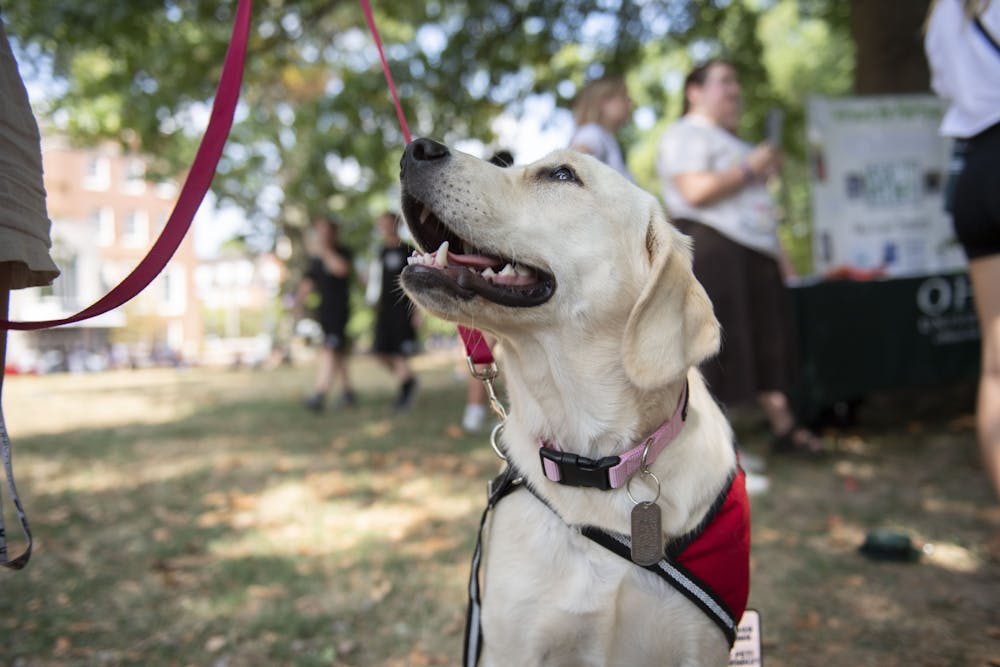Students are discussing the topic of having dogs and service animals in training on campus, arguing they should be allowed in Ohio University residence halls.
The current policy states animal pets are generally not permitted within OU buildings or vehicles, with some exceptions. An exception is made for service or assistance animals, and although service animals in training are listed, student organizations are petitioning for more.
4 Paws for Ability is a nonprofit organization at OU that aims to train and take care of service dogs in Athens.
On Wednesday, 4 Paws and Student Senate tabled outside of Baker, encouraging people to sign a petition to allow these service dogs to be used by students in residence halls.
“By providing your digital signature, you support for the allowance of service dogs in training of the 4 Paws for Ability organization to be allowed into the Ohio University Athens campus residence halls,” the petition reads.
The petition aims to make OU compliant with Ohio Revised Code 955.43, which addresses dogs with blind, deaf or mobility-impaired people.
Brock Evans, a senior studying nursing, and Aidan Burns, a senior studying psychology, are Resident Advisers in Adams Hall. According to Evans and Burns, if it is not a registered animal, students cannot have them in the dorms.
“You would have to have a therapist’s document to determine if you have that disability, to prove that you have it,” Burns said. “A service animal is different from an emotional animal or ESA.”
Burns said service animals do have duties to perform and can accompany students to class or anywhere around campus; however, emotional support animals can only stay in the dorms or go outside to use the bathroom.
Sophia Dawson, a sophomore studying English literature, is an RA in Johnson Hall and described the process of getting an animal registered for residential use.
“You have to go through an accommodation process with accessibility services,” Dawson said. “You can find them in the Alden Library.”
Dogs and cats are the typical animals students may see walking around with and are animals that can be with them in dorms, but a question persists with what types of animals should be allowed.
“An assistance animal is very personal, especially in this context … I can’t really say how useful something like a rat would be to someone’s experience,” Dawson said. “I think they should be able to live comfortably in the space provided, like within the dimensions of a dorm room.”
Luke Searfoss, a sophomore studying environmental science and sustainability, lives in Bromley and says he sees students walking around the dorm with service animals often but knows the process can take a while.
“I see a lot of dogs for people with diabetes, and I think that can do more than some of the technology used to save people’s lives,” Searfoss said. “I think that’s really important.”
Giah Harper, a senior studying anthropology, has a dog on campus who is registered as an ESA dog on campus and with the government.
“They aren’t just random dogs on campus, they are usually registered ESA animals,” Harper said. “Any animal should be able to give you emotional support … but I do think that there are clear guidelines that accommodations give students, and they are pretty fair guidelines.”
Harper said her own dog lives happily in her dorm.
“I think that him being in my room is where I feel most comfortable, and he feels most comfortable,” Harper said. “When he goes out to the bathroom, he can interact with other people if he chooses, and if he doesn’t, he will keep walking.”






